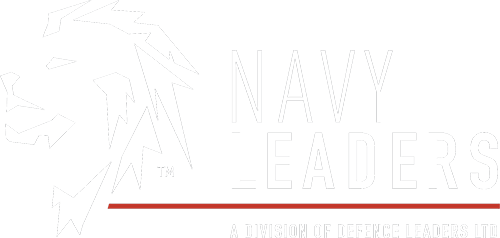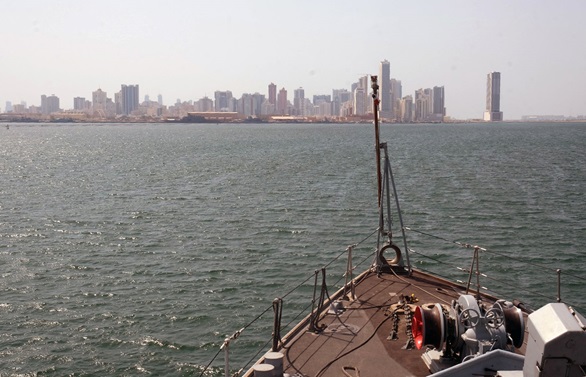Middleton gives key supporting personnel an insight into RN's Gulf operations
)
Minehunter HMS Middleton hosted a mix of soldiers, RAF aviators and a couple of landlocked matelots as a thank-you for their support – and to give them an insight into the RN’s day-to-day mission in the region.
Although Bahrain is principally a hub of RN operations in the Middle East, it’s a tri-service base; RAF personnel support the crucial air link with the UK and other bases in the region, while soldiers – currently 2nd Battalion the Yorkshire Regiment – help safeguard the Naval Support Facility.
As the Hunt-class ship left harbour, guests were able to experience all the drills which all ships go through whilst transiting the port at Mina Salman and heading out in the Gulf, including a demonstration from the Force Protection Team who safeguard the ship in confined waters and in times of danger.
Once in open water, the visitors were treated to a mix of demonstrations of minehunting activity and tours of Middleton (minehunters, foot for foot, are the most expensive ships in the fleet due to the hi-tech kit crammed into them).
It was clear that a few of the group were taken back by the size of the cabins and messes and how many sailors were accommodated in such a small space.
Elsewhere there were demonstrations of diving kit, a look inside the decompression chamber carried in case of an incident involving the dive team, and a hunt for mine using a SeaFox remote-controlled submersible, subsequently recovered by one of Middleton’s RIBs.
Private Webb, who joined the retrieval RIB team, said: “It was really interesting to spend time at sea with the Royal Navy.
“Being in the Army and also being fairly junior I previously did not have much of an understanding of what activities the Royal Navy conduct at sea.
“It was great to see this first-hand and especially to improve my understanding how minehunting ships work.
“Heading out in the RIB to retrieve the SeaFox gave me a chance to better understand the demands of unexpected events that can happen at sea. It was great to have this more first-hand experience, however I think I prefer being on land!”
Petty Officer David Benyon is a reservist from London’s HMS President currently serving in the Gulf on Maritime Trade Operations at the RN HQ in Bahrain – ensuring the safety and security of shipping passing through the region.
“Some time spent on a minehunter in the Gulf helps to provide a broader understanding and context to what I do,” he explained.
“My role in the ops room at headquarters is closely linked to the work done at sea by the force of MCMVs. The minehunters are operating at the sharp end of things, but together we’re contributing to maritime security in the Strait of Hormuz, helping reassure international partners and merchant mariners that the sea lanes are open to trade and prosperity.”
The 2nd Battalion the Yorkshire Regiment – aka 2 Yorks – have been providing force protection at the base in Bahrain, including maintaining a Quick Reaction Force to respond at immediate notice to incidents.
Troops spend six to eight weeks in theatre typically as companies and platoons are rotated through the base.
“Many of 2 Yorks have not worked with the Royal Navy before – and quite possibly may never get the chance to again,” explained Lieutenant Pete Burke.
“It is always good to broaden understanding and learn lessons from the tri-service community that we can implement to improve our own practices. I would encourage all future units to engage as much as possible with all Services in Bahrain.”
Squadron Leader Steve Dixon is the RAF liaison officer at the RN headquarters in Bahrain with its RAF counterpart in neighbouring Qatar.
“My role has already allowed me to understand the ways of the Royal Navy, especially its vital role in the Middle East,” he said.
“Working in a headquarters it is also important to experience the RN operating in its natural environment – out at sea. It’s also helped make sense of some of the ‘Jackspeak’ thrown around the office on a daily basis!’

